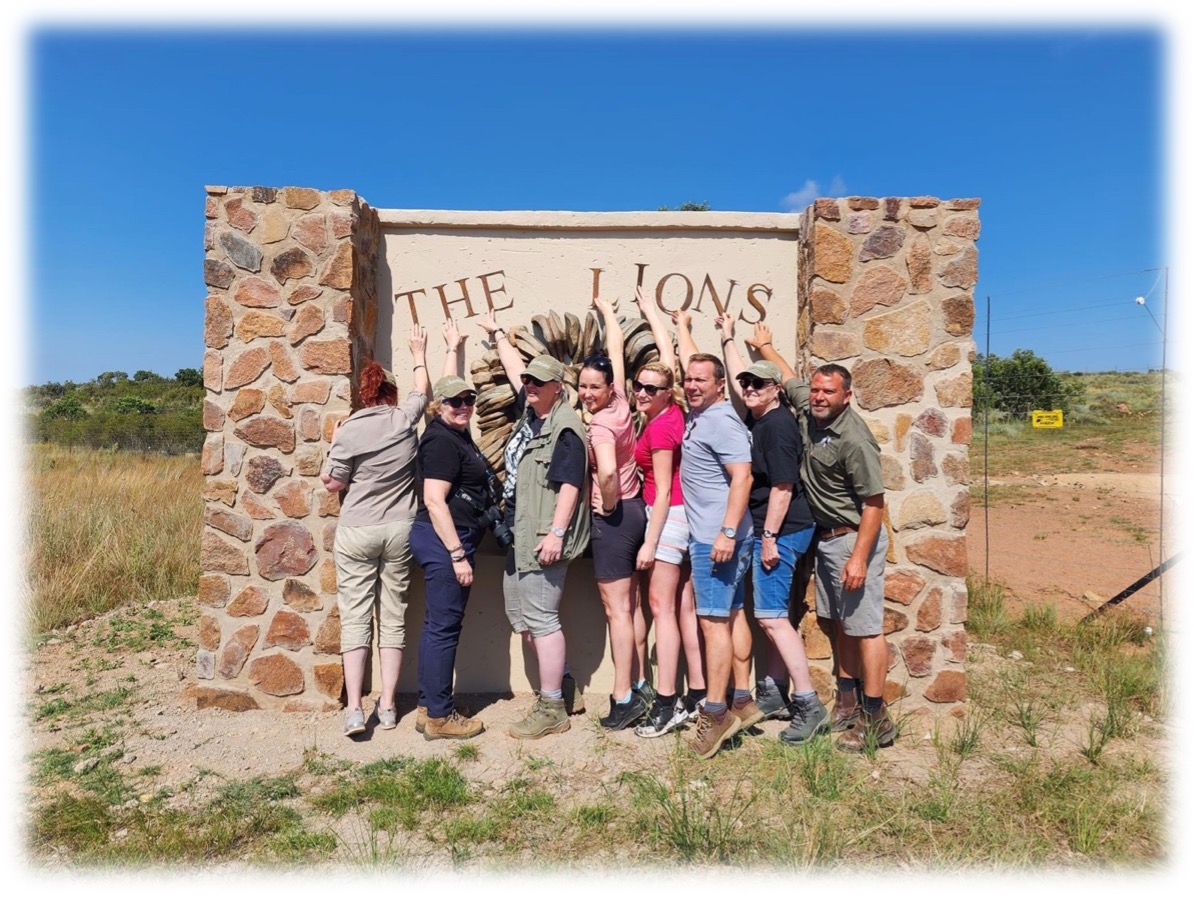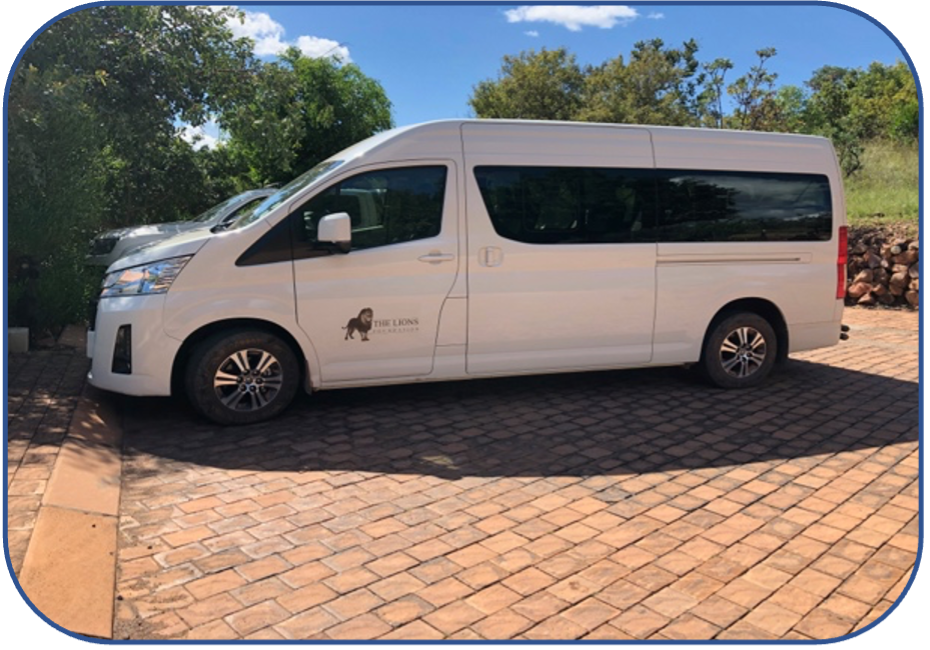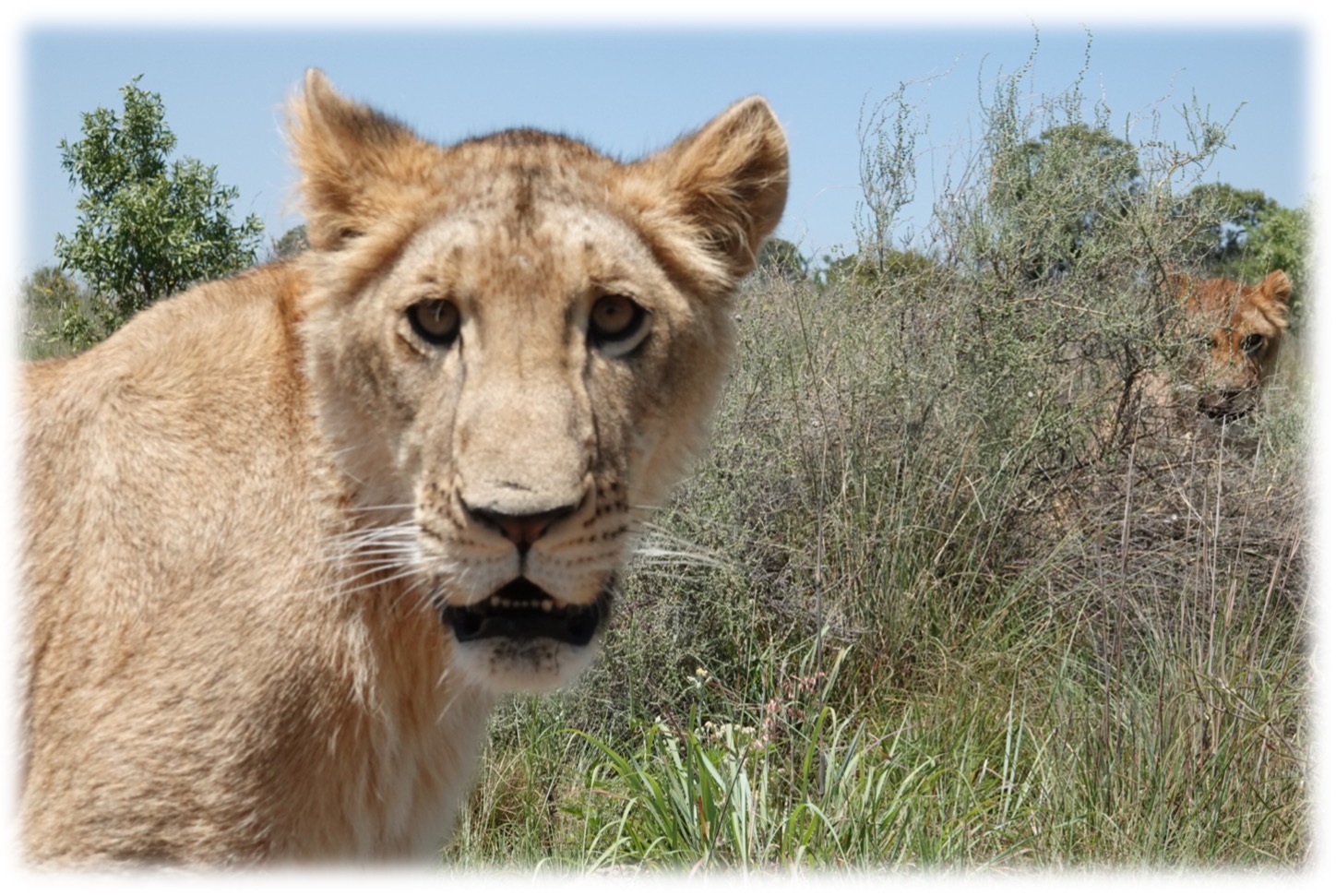PRACTICALITIES
When you come to volunteer at TLF, not only do you get the chance to work close to amazing wildlife, but you also get the chance to meet and work with people from around the world and experience an entirely different culture.
Volunteers are very much appreciated and are essential to the proper running of the sanctuary; but, in all that we do the animals must come first. We encourage you to make friends and socialise after work in the evenings. However please always be respectful to the animals, other volunteers and staff that live here.
Accommodation, food, and on-site amenities
Most accommodation is two or three people per room in single sex rooms, with the exceptions of couples and friends. Bedlinen is provided to you during your stay. All rooms have either en-suite or shared bathrooms. You can also opt to stay at the lodge, at an extra fee.
Your rooms are cleaned before your arrival, and we ask all volunteers to look after their own space by keeping your personal area tidy. All rooms have electrical outlets for you to use, the South African with three round pins, 220v. Please bring adapters and/or extension cords for your type of plugs.
Depending on the occupancy, you can cook your own dinner or with the group, or eat at the lodge. If you are on a special diet, please talk to your Volunteer Coordinator. Breakfast and lunch are continental style.
You can do your own shopping for snacks, drinks and food to your own taste in town.
Free use of Wi-Fi is available to check emails, social media and for booking flights or hotels. We politely ask that this facility not be used to download large files such as movies. We also have an on-site laundry where you can get your clothes washed.
On-site support
Our Volunteer Coordinator can help whenever you need assistance. With scheduling issues, animal issues, illness, emergencies back home, as well as personal support while you are away from home.
Orientation
Upon arrival, volunteers will be greeted by the Volunteer Coordinator, be shown to their room and receive an explanation regarding domestic matters as well as a brief description of the work they will be doing, including instructions on health and safety, regarding proximity to the animals. On the day of arrival or the next day, you will also be given a full tour of our sanctuary and the Rescue Centre, where staff will explain to you why we exist and how you can help animals in South Africa. This is a great time to meet many of our animals and learn their stories. You will also receive a tour of the nature reserve where the sanctuary is located.
Work schedule
As working with animals is not always predictable, your work hours will vary a little. Typically, the working day starts at 8AM, volunteers will normally finish work around 4PM, with breaks throughout the day.
Volunteers will be assigned tasks each day by the Volunteer Coordinator, and work with team leaders who are longer-term experienced volunteers who assist and guide their teams throughout daily tasks. Each person has their own pace, their own strengths, and weaknesses. You are kindly asked to respect that not everyone has the same abilities and may work at a different pace to yourself.
Everyone is here to help the animals and makes their contribution in their own way. Please speak to the Volunteer Coordinator if you feel you have been given too much or too little work for your personal abilities, as there are plenty of tasks to suit all.
The Volunteer Coordinator will be around to answer any questions and monitor and observe throughout the day. You, the volunteers help a lot around the sanctuary with daily tasks and large ongoing projects. Without you, it would not at all be possible.
Living expenses and money matters
Whilst all your food and accommodation are covered while you are here, volunteers should bring some additional money with them, such as for local sightseeing, meals out with friends, snacks, etc. South Africa is cheaper than most western countries but is one of the more expensive countries in Africa. The local currency here is the South African Rand (ZAR or R). Check the exchange rate with your own currency from one of the many online resources, for example www.xe.com.
Examples of some typical costs:
A meal, excluding drinks, at a restaurant (average) ZAR 150
Bottle of beer at the local convenience store ZAR 16
Bottle of soft drink 1L (e.g., Coca-Cola) ZAR 17
SIM-card starter pack for mobile phone (SIM-card including 2 GB and 60 mins) ZAR 100
Local town amenities
We are situated at a 30-minute drive from Bela-Bela town. The town has two local shopping malls, some chain restaurants, a few supermarkets, and a shopping street. There are also ATMs, but please note that it is not always possible to pay with your own bank debit card in the village or at TLF.
Telephones
Even if you are only staying a few weeks, the best option is to bring your own mobile phone and buy a cheap South African SIM-card here (available in Bela-Bela town), so you can receive calls/ SMS for free and make calls at a reasonable cost. The mobile wavebands in South Africa are the same as Europe, Australia, New Zealand, etc. So, a mobile phone from these regions will work fine here. Cell phones from North America will need to be multi-band to be able to work here.
It is not possible to make international calls from TLF. If you need to make an overseas call you can do so at one of the nearby towns such as Bela-Bela. In case of an emergence, contact your Volunteer Coordinator.
Internet
Most volunteers these days use social media, email, and Skype to stay in contact with home. Free use of Wi-Fi is available to check emails, social media and for booking flights or hotels. We politely ask that this facility not be used to download large files such as movies or games.
Wish list
Some volunteers ask us if there is anything they can bring to help us with the animals at the sanctuary. However, as we are mainly dealing with large animals, we also need large and strong enrichment items, which are not easy to bring on a plane. It will be very much appreciated if you donate to TLF so that we can buy what we need locally. This will also support the local economy.
If you think you can help with specialized animal husbandry equipment, please contact info@thelionsfoundation.com.
Free time at and around TLF
Care for the animals is required 365 days a year. However, there is free time during and after work, and we do offer volunteers a day off each week and encourage you to get out to experience what the area has to offer.
- Free time in the evenings:
There are some locations at the centre for you to relax, read, or get in touch with home. We do not encourage you to go out of the reserve after sunset, as it can be unsafe.
- Free time on a day off:
You can visit a town in the area, visit another animal shelter (we will provide names) visit a big-5 nature reserve, go ziplining and more. Usually, transport can be arranged from TLF for a small fee.

PRE-ARRIVAL INFORMATION
Please read through this section carefully, so that you are fully prepared in getting to us safely, and that you are organised when you arrive.
VISA
The following is advised for most nationalities, but requirements frequently change, so do not trust your, potentially outdated, travel guide and PLEASE CHECK THE VISA REQUIREMENTS FOR YOUR NATIONALITY WITH THE SOUTH AFRICAN EMBASSY IN YOUR COUNTRY OF RESIDENCE.
- Your passport needs to be valid for at least 6 months upon arrival to South Africa. Please check and make sure your passport will not expire soon, or otherwise organise a new one plenty of time in advance of your departure date.
- You will need to be able to show a valid return ticket. If you can’t, you will need to pay a deposit.
- If your stay in South Africa is shorter than 90 days, then the free VOA (Visa On Arrival, which just means a stamp in your passport) should cover you if arriving by air.
- You may very well have to show that you have the financial means to support yourself for the time you stay in South Africa. Bring bank statements or anything that proves this.
- You may need a letter from TLF confirming your participation as a volunteer, this will be sent upon request.
Please note: Overstayers waiting in South Africa for a visa extension will receive a temporary ban from South Africa upon leaving the country. This banishment can be imposed for a period from 12 months up to five years. Even if you have been waiting (for a long time) for approval to extend your visa, customs will not hesitate to impose a ban on you!
Travel Documents
You are advised to make copies of important travel documents (passport, tickets, driving licence, etc.) and keep these somewhere safe and separate from the originals. An extra copy to leave with your family back home might also be a good idea. We also suggest that you register your travel details with your home countries Foreign Affairs Departments if they have one.
Travel insurance
Although we will do our best to ensure your safety, TLF does not accept any liability for you or your possessions whilst on or offsite as a volunteer. Please make sure you have the necessary insurance cover for any emergency and that you bring a copy of your insurance policy with you. Your travel agent will recommend insurance and there are several independent insurers offering deals for travel insurance.
Health insurance
Foreigners are not eligible for free medical treatment in South Africa. Since the local hospital in the nearest town of Bela-Bela is not available, you will need to go to a private clinic if you need medical attention and you will need to pay for it. Please check with your existing health insurer how you are covered and if you need extra medical insurance for volunteering in South Africa.
Packing List
This list will help you consider what you will need during your stay at the sanctuary, alongside all the other items you would normally take travelling. Most items can also be bought in town, if you want to travel light.
We suggest:
• Sunhat, cap or bandana
• Torch/flashlight
• Alarm clock
• Power adaptor
• Comfortable shoes or sandals
• Lightweight rainproof clothing (e.g. poncho – cheap quality ones can be bought locally)
• Ensure your mobile phone is unlocked if you wish to buy a South African sim card
• Simple first aid kit with plasters, bandages, antiseptics, and various medications for gastric bugs
Summer season (Oct – Mar) specific:
• Lightweight work clothes you do not mind sweating in and getting dirty (shorts and t-shirts)
• Long sleeve top(s) and trousers to protect you from mosquito bites in the evenings
• High-factor sun-cream
• Sunglasses
• Mosquito net with hooks to hang it
• Plenty of insect repellent
Winter season (Apr – Sep) specific:
• Warm clothes, gloves, shawl, winter hat. Especially nights can be quite cold here.
Pre-arrival Checklist
- Pay deposit payment to TLF (as soon as possible to secure your application)
- Pay remainder balance to TLF (before arrival)
- Health check-up with travel doctor (well in advance of travelling)
- Vaccinations advised by travel doctor
- Visa (if required)
- Travel insurance
- Medical insurance (if necessary on top of your normal health insurance)
- Book flights (the sooner, the cheaper)
- Notify TLF of arrival details
- Review TLF Rules and Policies before arrival

HEALTH & SAFETY INFO
Before arriving
We recommend that all volunteers go to a travel doctor plenty of time before they arrive to receive the most up to date health advice before visiting South Africa. We require that all volunteers have their vaccinations for DTP (Diphtheria/Tetanus/Polio) up to date. This is mandatory.
There are plenty of mosquitoes here, but TLF is NOT in a malarial area. Please consult your travel doctor for the latest health advice.
GETTING TO TLF
Volunteers are responsible for arranging and paying for their own flights.
We are unable to advise or help you in booking flights. The nearest international airport is Johannesburg OR Tambo (airport code JNB).
Arranging a transfer to our sanctuary
We can arrange pickups for volunteers from Johannesburg airport or a hotel. The costs are R1500 per person, or R3000 per ride if you travel with more than two volunteers at the same time. Sometimes we can arrange pickups together with other new volunteers that arrive on the same day as you. However, this depends on what time you and other volunteers are available to be picked up. Please, let us know if you are interested in sharing a taxi with other volunteers, or prefer a private transfer
.

Your pick-up details. If you wish to be picked up from the airport, please send us your flight number and arrival time. If you want to be picked up from a hotel, please send us the hotel name, address, and phone number. The best pick-up time for a hotel pick-up from Joburg is 9AM.
For arrivals at a bus or train station please contact the sanctuary and we will send a car for you.
Contact
The Lions Foundation
Schrikkloof Private Nature Reserve
Farm Schrikkloof 951
Alma Road
Bela-Bela, Limpopo
SOUTH AFRICA
Office Contact
+27 (84) 611 0089 (during regular office hours)
Volunteer Coordinator Contact
+27 (83) 630-1059
Email: info@thelionsfoundation.com
Thank you for choosing to volunteer with us
Please take time to read our website www.thelionsfoundation.com and www.schrikkloof.com so that you can start to familiarize yourself with our organisation. Most importantly, come with an open mind, considerate attitude, lots of enthusiasm and you are sure to have an amazing experience with TLF.
The animals are all waiting to meet you!

